Migrants, young and old, are not always related. Border Patrol says fear of child trafficking forces separations
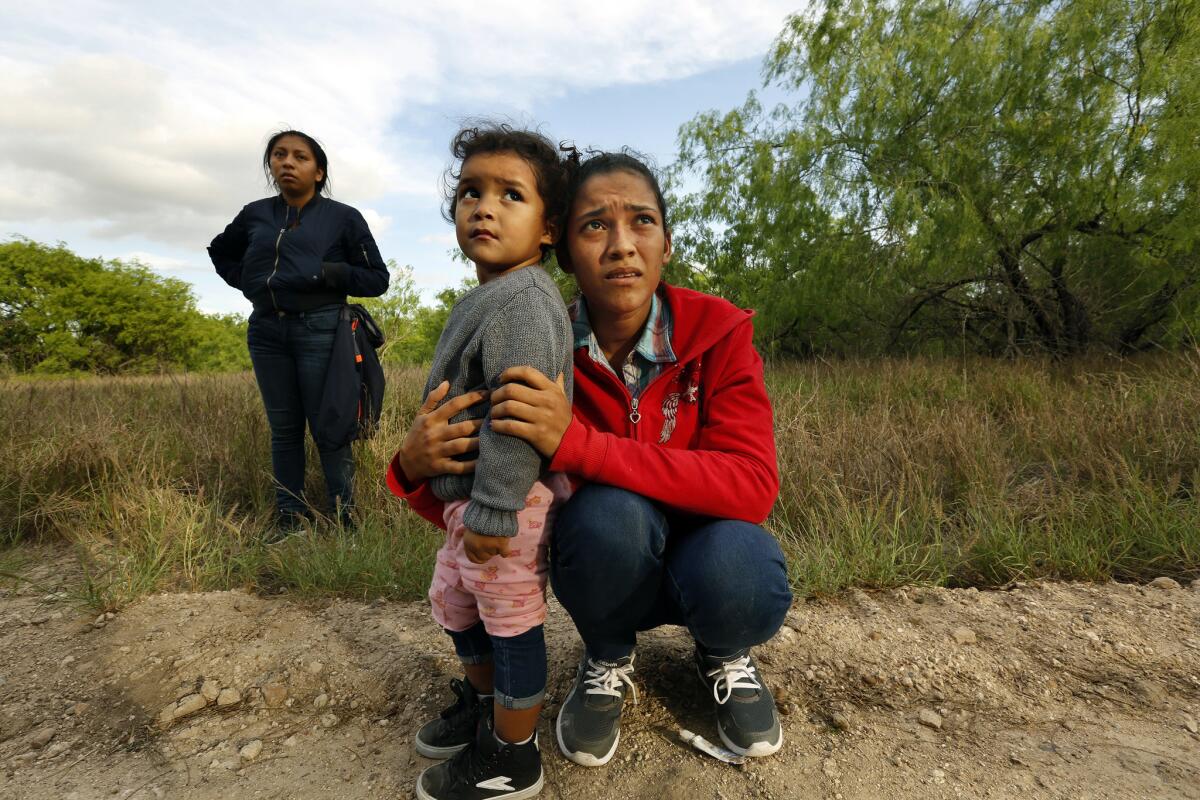
Border Patrol agents found the man walking a little boy up a dirt road north of the Rio Grande near Mission, Texas, with eight other Central American migrants.
The pair wore matching blue-striped polo shirts.
Ely Fernandez explained that he was a taxi driver who had fled San Pedro Sula, a notoriously dangerous city in northern Honduras. Fernandez, 43, said a gang had threatened to kill him for not paying money they wanted to extort from him.
He had crossed the border illegally in March hoping to join his wife in Louisiana, and the boy, he told agents, was their 5-year-old son, Bryan.
When’s the boy’s birthday? an agent asked. Jan. 21, Fernandez said, but he couldn’t remember the year — a red flag for agents.
Since October, more than 700 migrant children have been taken from adults claiming to be their parents, including more than 100 children under age 4. U.S. officials said they were trying to protect children who may be victims of trafficking or exploitation, but migrant advocates argue it’s the latest attempt by the Trump administration to stop migrant families from seeking asylum.
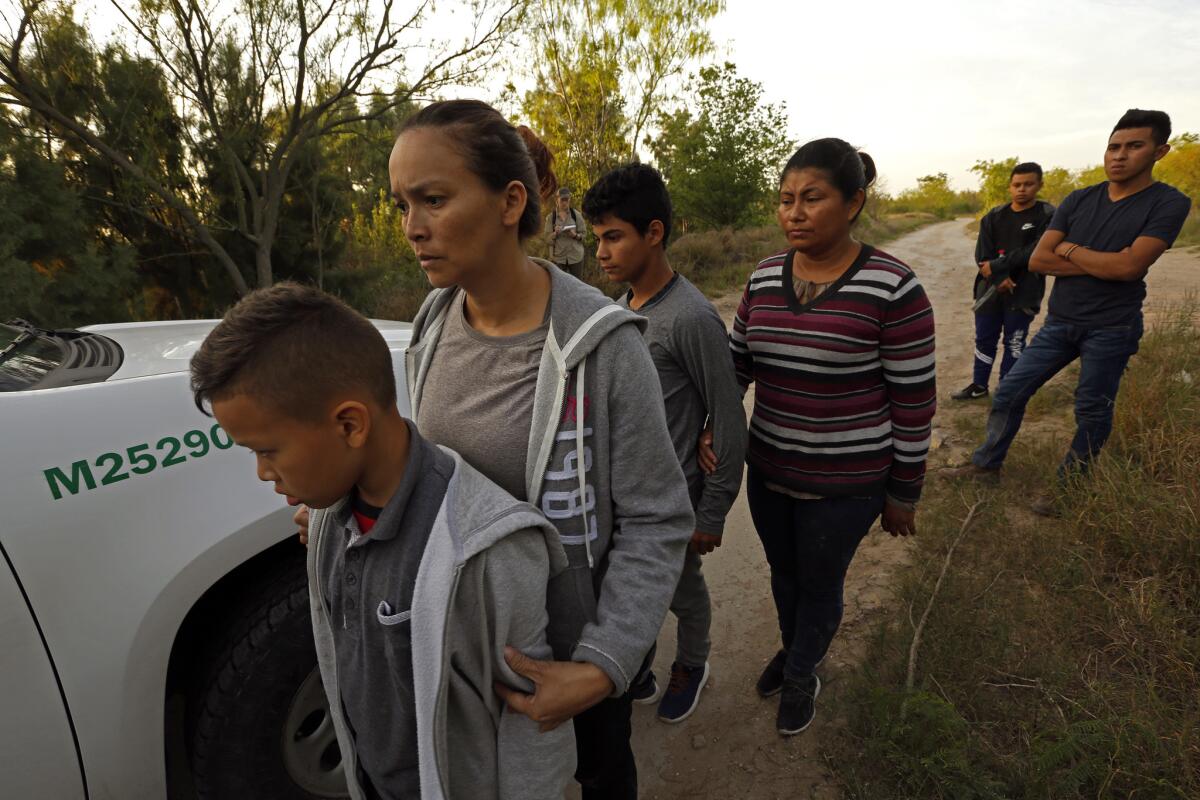
A “zero tolerance” border enforcement policy that took effect last week and was announced Monday by Atty. Gen. Jeff Sessions may result in families who illegally cross the border being separated after their arrest, with parents going to adult detention facilities and youths going to juvenile shelters.
A Border Patrol spokesman who spoke on background said the agency “strives to maintain the family unity,” but that parents may be separated from their children because of insufficient detention space, criminal histories, abuse and fraud, including “questionable familial relationships.”
He said agents “often rely on a child’s verbal and nonverbal cues to assist in determining a bona fide claim of parentage or legal guardianship,” including “the child’s familiarity and/or interaction with the adult, the child referring to the adult by his/her first name, and the child’s apprehensiveness toward the adult.”
It’s difficult for migrants to assert parental rights. Many cross the border with their children’s birth certificates tucked in pockets or plastic bags. Agents often call local consulates to check families’ documents. But the documents can be faked, agents said. Even if consular staff verify them, agents may still challenge migrants’ claims to their children.
In Texas’ Rio Grande Valley, where most families have been crossing the border in the last five years, the Border Patrol reported 462 cases of fraud among children and family migrants and prosecuted 60 cases this fiscal year, which began in October. Agents have also separated parents by detaining and charging them with illegal entry in federal criminal court and placing children in temporary shelters.
Katie Waldman, a Homeland Security Department spokeswoman, said in a statement that the agency is “looking at all options in conjunction with the attorney general's zero tolerance policy for those illegally crossing the border.” She said they had “a legal obligation to protect the best interests of the child whether that be from human smugglings, drug traffickers or nefarious actors who knowingly break our immigration laws."
Migrant advocates are fighting the separations.
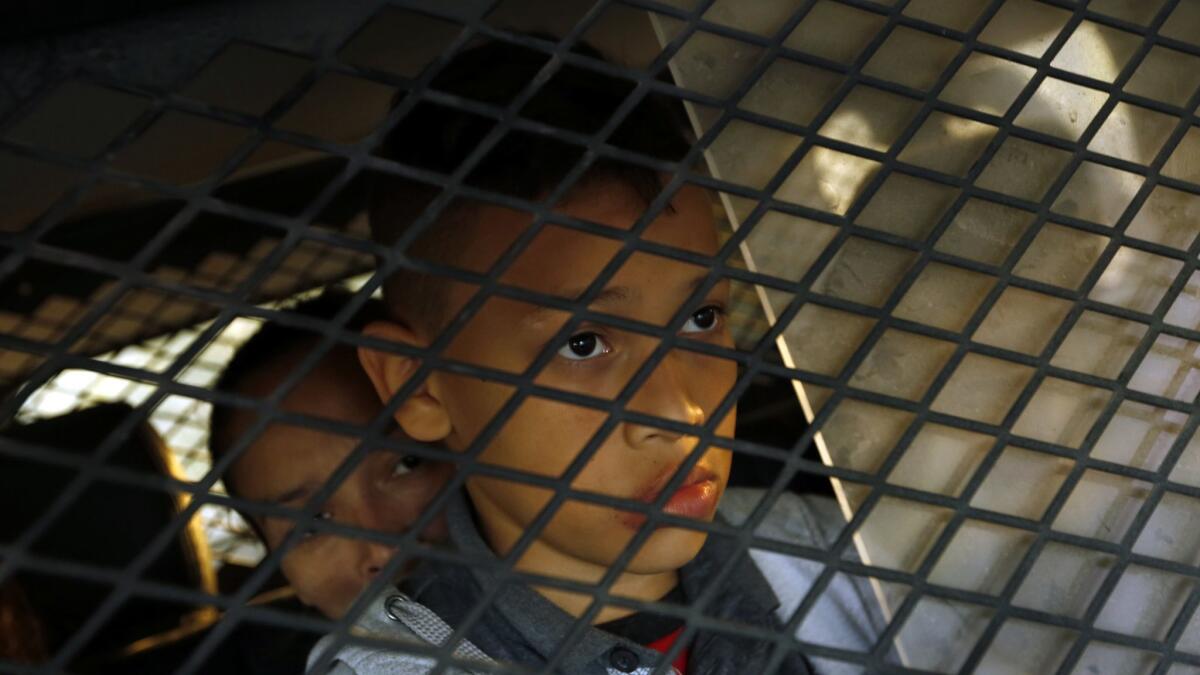
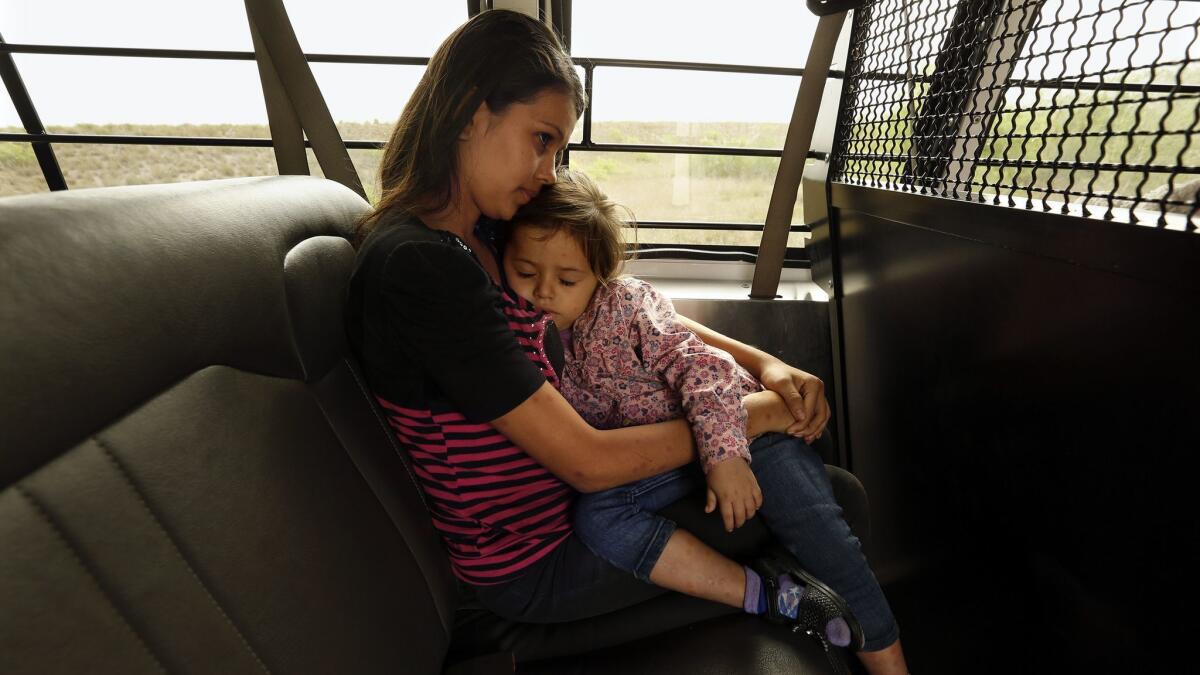
The ACLU sued after immigration officials separated a Congolese mother and daughter who had fled to San Diego seeking asylum in November. The mother, identified in court records as Ms. L, was detained and ordered deported. Her 7-year-old daughter was sent to a shelter in Chicago.
Government lawyers argued in court that “any potential hardship that separation might cause to a parent and child is heavily outweighed by public and governmental interests in ensuring the safety and welfare of the child.”
After four migrant parents and a grandparent were separated from their children and charged with entering the country illegally in El Paso last year, government attorneys argued that their parental rights had not been violated because “they have never offered any evidence at any point in these proceedings indicating that they are, in fact, the parents (or grandparents) of the juveniles that accompanied them” and “the government is not in a position to readily make that determination for aliens entering the country.”
Border Patrol officials have said they may require migrants to undergo DNA testing as part of a pilot program in the Rio Grande Valley that later could be expanded.
“We believe that a lot of these kids are not necessarily part of a family and they’re being trafficked and exploited,” Antonio “Tony” Trindade, the Border Patrol’s associate chief of enforcement systems, told a crowd at the annual Border Security expo in San Antonio in February.
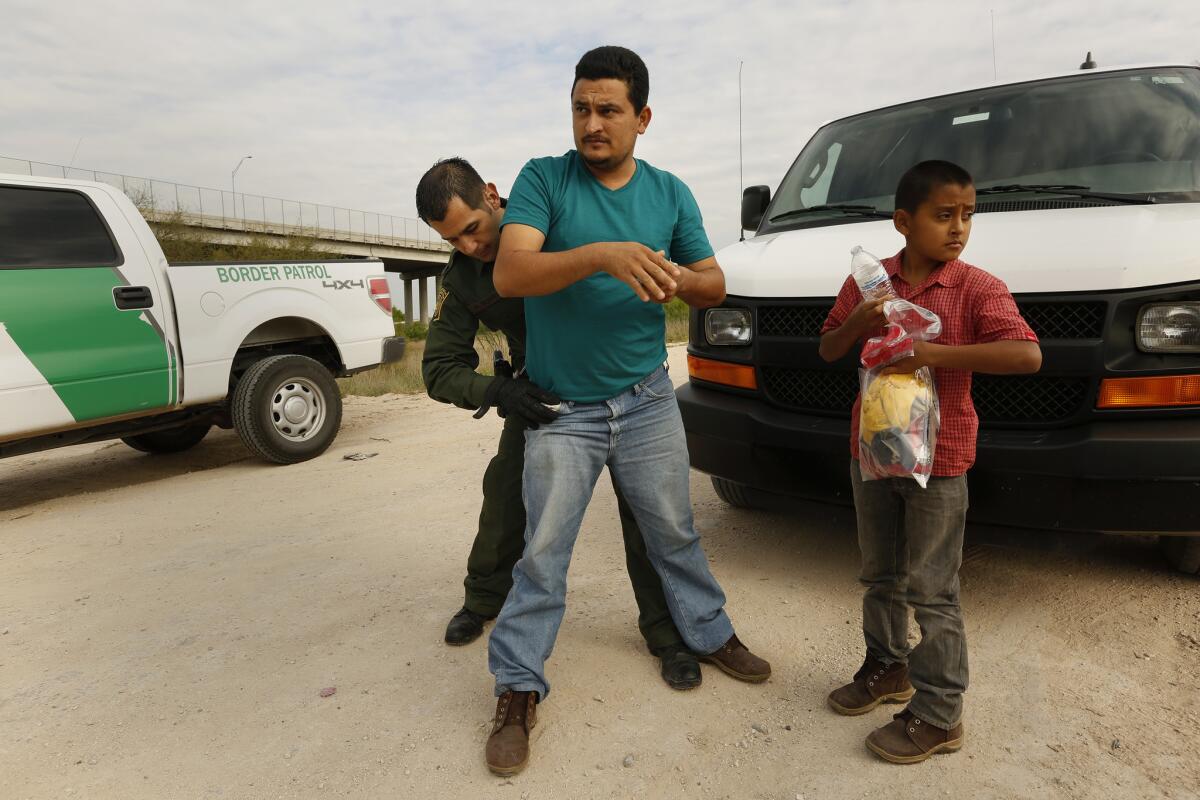
Migrant advocates said it was not uncommon to see children arrive with adults who are not their parents. Parents may cross the border alone to find work, leaving children to be raised by relatives who later accompany them north.
“One thing we have seen a lot of are people coming with children who are not theirs,” Sister Norma Pimentel at Sacred Heart shelter in the border city of McAllen, Texas, said recently.
Sometimes the adults are relatives — an aunt, grandparent or step-parent, she said.
“They do weed out a lot who say they are parents but they are not,” she said of the Border Patrol.
The shelter had 64 migrants that day, many of them families, mostly Central Americans.
Maria Ramirez said the Border Patrol questioned her about her children, ages 17, 15 and 5. Agents didn’t believe she was their mother, even after she produced Honduran birth certificates, Ramirez said.
“They said they were fake,” she said. “They gave me the impression I would be deported and told me I had to sign the papers.”
Ramirez, 37, saw other parents at the processing center who were told the same thing. Unlike her, they had signed the paperwork and were deported.
Ramirez refused to sign deportation papers, insisting her children’s birth certificates were real. She and her 5-year-old son were held separately from her older daughters for five days, but were ultimately reunited.
Some migrant advocates support the use of DNA tests.
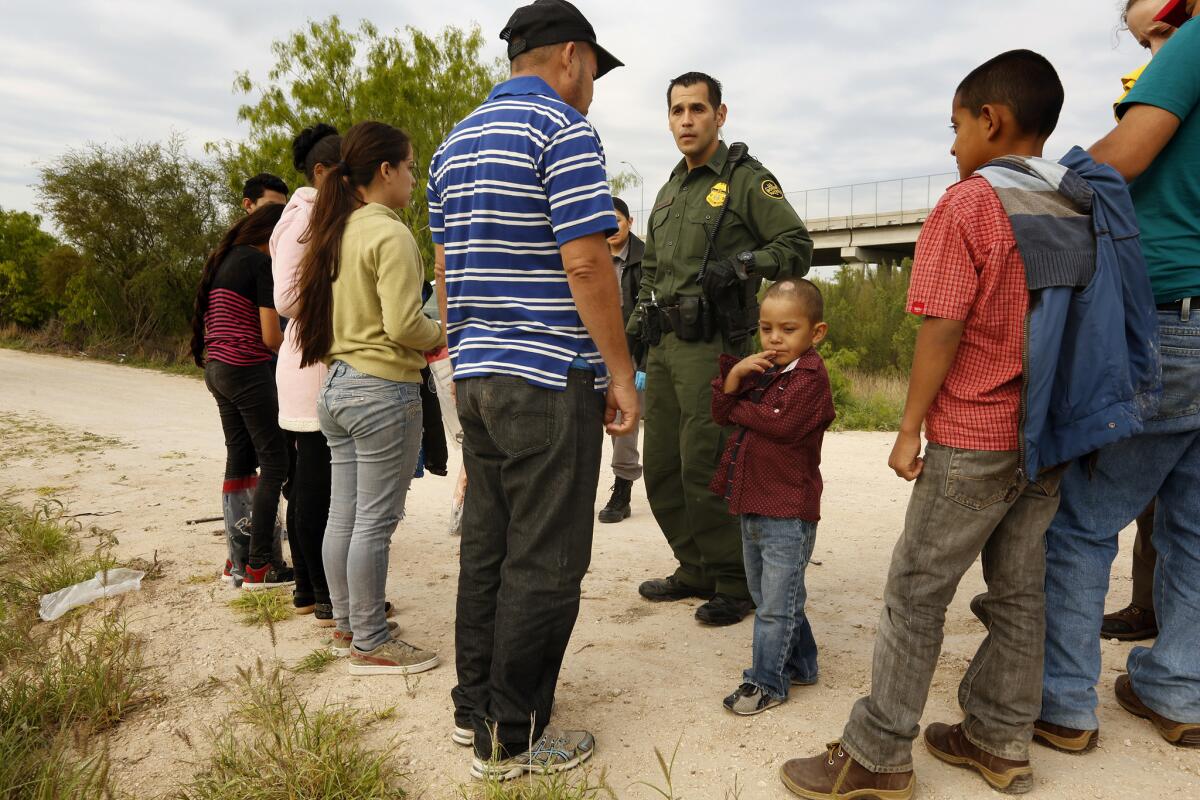
In cases like that of the Congolese mother separated from her daughter, DNA testing could help reunite families and win their release, said Lee Gelernt, the woman’s New York-based ACLU attorney. He questioned why, if the Border Patrol suspects that smugglers are posing as parents, it doesn’t test DNA.
“Is that the reason they’re really separating kids? We’re skeptical,” said Gelernt, deputy director of the ACLU’s national Immigrants’ Rights Project. “They need to find some way to figure it out. They have ways short of DNA, but I think any parent would be willing to agree to DNA. They’re bringing documents but they’re not believing them…. Guards are telling them, ‘You know how to see your child again: Go home.’”
Other advocates said DNA tests could add to migrants’ legal problems.
“There are other ways to be able to identify when a child is trafficked, that it doesn’t have to be as intrusive as a DNA test,” said Astrid Dominguez, director of the El Paso-based ACLU Border Rights Center. “How long are you going to keep it for? What are you going to use it for? And who are you going to share it with? It’s unnecessary.”
When agents further questioned Ely Fernandez, the Honduran taxi driver, he produced a birth certificate for the boy he had been with on the dirt road.
“That’s me!” Bryan shouted, pointing to the photograph.
“This is my proof that he is mine,” Fernandez said.
Agents dropped the matter for the moment, loading the migrants into a van.
“That’s just the preliminary check. They will ask them more at the processing center,” said Border Patrol Agent Robert Rodriguez.
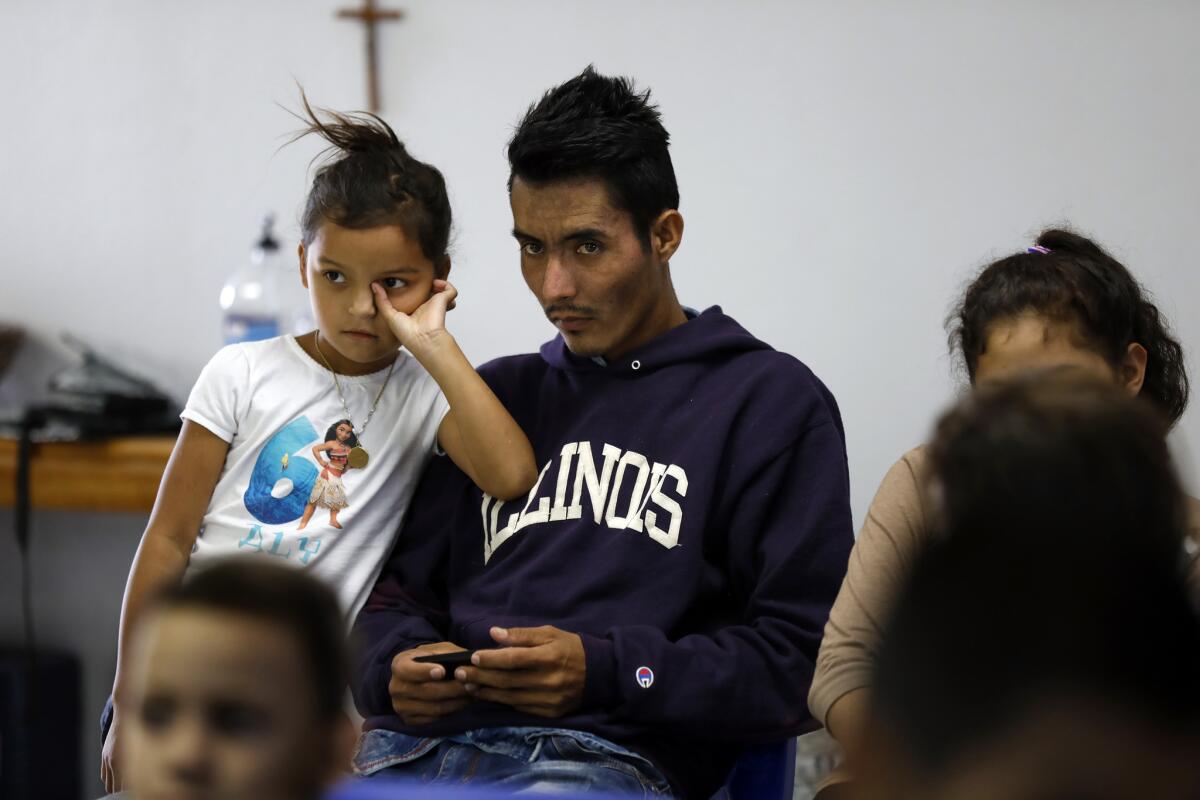
Start your day right
Sign up for Essential California for news, features and recommendations from the L.A. Times and beyond in your inbox six days a week.
You may occasionally receive promotional content from the Los Angeles Times.




